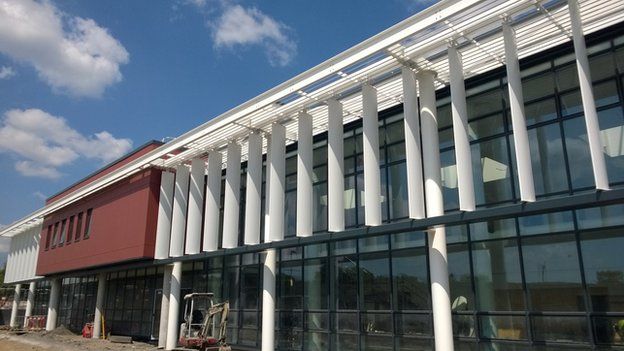474 - A case report to describe the management of endodontic infection in an immature lateral incisor with dens invaginatus.
M Ball L Sadaghiani
Presented by: Madeleine Ball
Cardiff Dental Hospital
Dens invaginatus is a condition which occurs as a result of invagination of the enamel organ and the reported prevalence of adult teeth affected is 0.3-10%. It frequently leads to pulpal and periodontal involvement due to bacterial microleakage which can be challenging to diagnose and treat due to unusual canal morphology. This case study looks at the sequalae and management of endodontic infection in an immature, maxillary left lateral incisor (UL2) with dens invaginatus. A 19-year-old male was referred by his dentist due to recurrent buccal swellings and a sinus tract associated with the UL2. The patient reported no history of trauma and at examination was asymptomatic, but recalled having one course of antibiotics in the past. The UL2 had a palatal fissure sealant and had no mobility, periodontal pocketing, tenderness or discoloration. The response to pulp sensibility testing was negative and a periapical radiograph revealed a large periapical radiolucency associated with the UL2, an open apex and immature root formation. A diagnosis of UL2 necrotic pulp and Chronic Apical Abscess was made. Primary root canal treatment was performed under a split dam technique using ProRoot MTA as an apical plug and thermo-plasticized gutta percha for obturation. Knowledge of advancements in endodontic materials is important for all practitioners advising patients of treatment options and gaining consent, therefore, this case aims to give an overview of the steps involved in the treatment of non-vital teeth with immature root formation and open apices. Current evidence based on various randomised controlled trials shows that MTA is associated with better outcomes compared to the traditional approach of apexification using calcium hydroxide. It provides the advantage of sooner apical closure and so limits the risk of coronal or radicular fracture. Should this treatment fail in the future, a surgical approach may be considered.
Consent Statement: Written informed consent for publication of their clinical details and/or clinical images was obtained from the patient/parent/guardian. A copy of the consent form is available for review by the the meeting organisers or the Editor of this journal..
Poster








